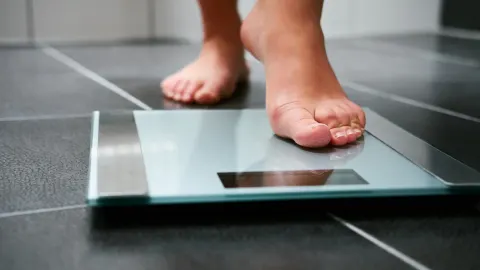Obesity
Introduction
Obesity poses a problem for the well-being of millions of Americans. If you struggle with your weight, you might have questions about how it may impact your health.
Start by meeting with your healthcare provider (HCP). If your HCP is concerned that you are obese or sees that you are struggling with morbid obesity, you'll want to discuss strategies for how to get to a healthy weight.
Get the facts on managing your weight, as well as information about risk factors that may be keeping you from living your healthiest life.
Causes of obesity

What causes obesity? Could your genetic makeup predispose you to obesity? How does childhood obesity play into obesity as an adult? Learn more about the possible causes and risk factors.
Hypothyroidism

Are you exercising regularly and eating healthy meals but still gaining weight? Could a thyroid disorder be contributing to weight gain? Read on to find out more about how thyroid issues may affect your weight.





